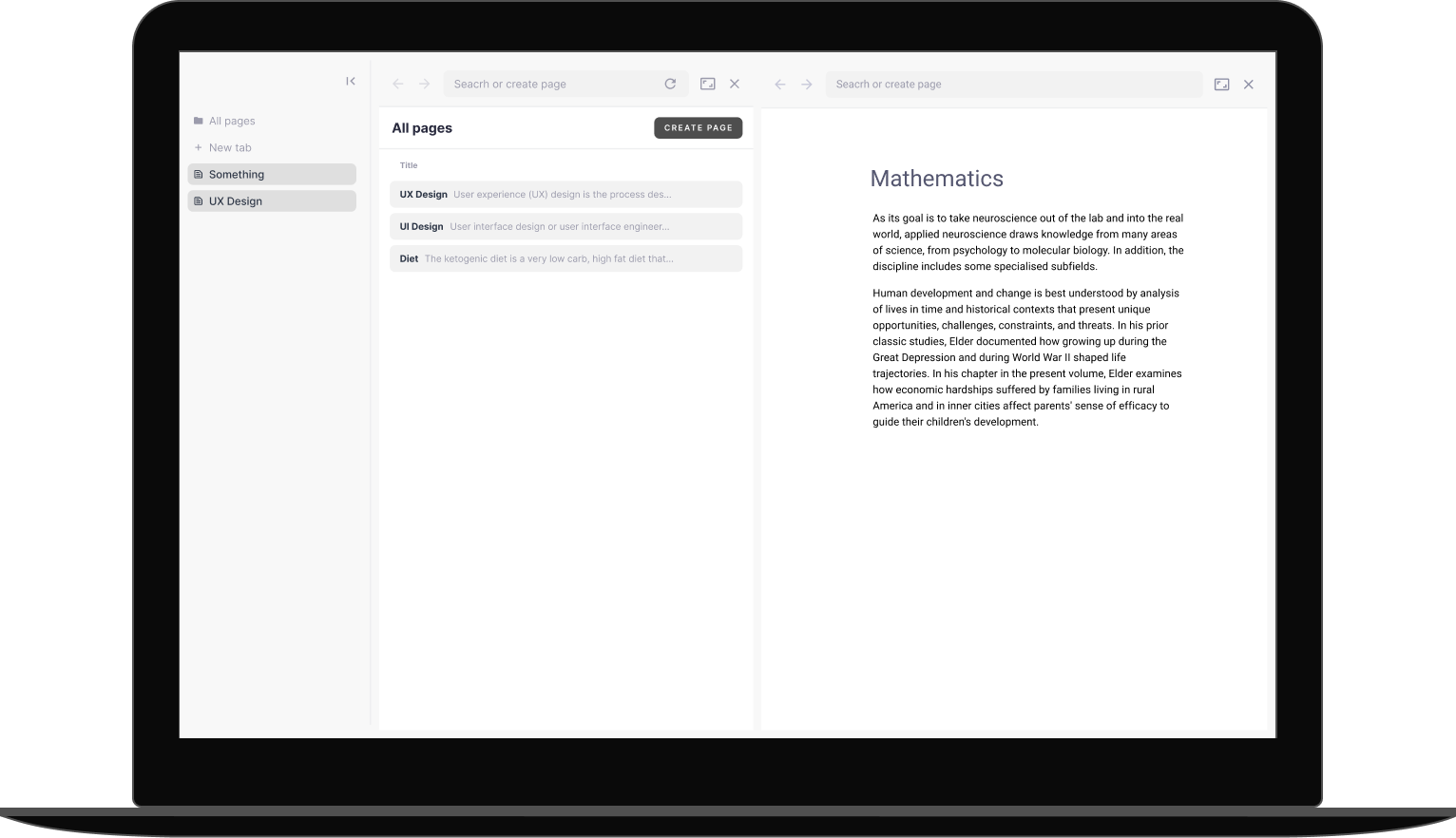How often have you wished for a few more hours in the day? If you're like most people, the answer is probably "always."
We all have the same 24 hours each day, but some people seem to get more done than others. If you feel like you're always pressed for time and can't seem to finish tasks without feeling rushed, you might be struggling with poor time management.
Poor time management is a common problem that can have serious consequences. If you're always running late or failing to meet deadlines, you could end up stressed, missing out on opportunities, or even losing your job.
If you're ready to stop rushing and start accomplishing, you’re in luck — there are many ways to improve your time management skills. With a bit of effort, you can better use your time and start getting things done.
We've all had days when things flow smoothly, and we finish everything on our list with time to spare. Then, there are days when we can't seem to get anything done.
One bad day doesn't mean you have poor time management, so at what point does it become an issue? The next day? After a couple of missed deadlines? A lost job?
It’s challenging to measure and assess your time management skills. They’re highly individual, and there is no general model of time management for comparison. The quality of your time management is usually evidenced by how productive you are, but even productivity is subjective—what one person considers a productive day, another may think is lousy.
Researchers suggest that we aren't very good at judging our own abilities anyway, usually because we don't have adequate information for self-evaluation.
Time management skills can only be accurately evaluated if we know how to measure them. The first step is to recognize what good time management looks like. When you know what that is, you can use it as a benchmark to see how you're doing.
How do you measure time effectively? These key behaviors can help you manage your workday and complete tasks:
When you master these skills, you'll be well on your way to having good time management skills. Of course, it's not always easy to do all of these things, which is why many of us have trouble managing our time.

Most of us don’t want to admit that we're not naturally adept at managing our time. After all, things get done eventually, and if nothing has fallen apart yet, we tend to think we're doing fine. We're holding on, aren't we?
However, hanging by a thread isn't enough. While you may think you’re doing well, signs of poor time management can show up in many aspects of life.
The following questions can help you evaluate how well you manage your time. Do you:
If you can answer yes to more than one of these signs, you may need to work on your time management skills. The more that apply, the more likely it is that you’re struggling with poor time management because of something beyond just having a bad day.
People struggle with time management for many reasons. It may be as simple as a lack of clearly defined goals. Even if you know how to plan and schedule, a lack of clear direction can make it difficult to know where to focus.
For others, the problem is more complex. Ineffective time management can stem from a single bad habit like multitasking or procrastination, or a combination of factors. When multiple causes compound on each other, we can quickly find ourselves in a downward spiral.
Among the causes of poor time management are:
One or more of these factors are likely at the root of an ineffective time management strategy. Regardless of the reason, poor time management can damage many aspects of our lives.
Our lives can be severely disrupted by poor time management. Struggling against our own habits often puts us in crisis mode, causing increased stress levels. Overworking can lead to burnout, and ignoring the problem can encourage procrastination. Our poor time management only makes it harder to complete our tasks, and the cycle continues, causing terrible effects over time.
The effects can be felt both personally and professionally. In our personal life, our physical and mental health can decline as stress levels rise, resulting in fatigue or burnout. Prolonged stress leads to poor immunity and metabolic function, and not getting enough sleep can cause a rapid decline in mental health. The constant feeling of being behind can make it hard to enjoy free time or time with loved ones.
On a professional level, poor time management can be equally damaging. Missing deadlines or failing to complete urgent tasks can cost us clients or jobs. As a result, we can hurt our reputations, which makes it difficult to achieve our long-term goals.
These effects emphasize why it's so important to manage our time well. If we don't, poor time management will continue — and eventually worsen.

If you've realized your time management skills could use some improvement, you’re already on your way. Taking the time to make an accurate self-evaluation means you’re making progress towards better time management. With a bit of motivation and a few time management techniques, you can avoid procrastination, burnout, and productivity loss.
Here are a few ways to overcome unhelpful habits, effectively manage your time, and gain control over your day:
Setting goals and priorities is the first step to better time management. What do you want to achieve? Why is it important? Having clear goals make sit easier to create a plan and schedule for achieving them.
Make sure your goals are SMART. Creating SMART goals gives you a roadmap of what you need to do and when:
Set some priorities once you have your goals in place. Not everything on your list deserves equal importance. Try using a tool like the time management matrix to help you identify what is most important to you.

Next, create a plan based on your goals and priorities. Making sure you’re using your time effectively will help you be more productive.
Write down everything you need to do, then mark each responsibility on your calendar. Schedule appointments and important tasks with deadlines first, then all other work. Be sure to plan enough time for each job, including a buffer in case anything runs late.
You can also use a productivity technique called timeboxing, or time blocking, to plan your day. The concept of time blocking involves dividing your day into chunks of time and assigning tasks to each chunk. Then, you only work on a single task at a time. It's an excellent way to guarantee enough time for each task while still allowing flexibility.
Once you've made a plan, stick to it. You’ll probably need to make adjustments to find the right fit for your productivity, but keep an eye on how much you’re changing your approaches. You may need to reassess your goals and priorities if you're constantly rearranging your time management techniques.
Distraction is good time management's worst enemy. Distractions make it way too easy to get sidetracked or give in to other things that aren't as important as the task at hand. These can be internal factors, like concentration issues, or external factors, like chatty colleagues or a crowded workspace.
Identify the distractions you face and create a plan to limit them. Do you spend a great deal of time on social media or email? Establish some rules to eliminate distractions. Reduce your email usage to a specific time of day and disable social media notifications to avoid interruptions. A website and app blocker could help you keep to your limits.
Perhaps it’s your environment. More than half of American workers currently work from home. Those environments are full of potential distractions. Research has shown that distraction rates are higher among those who have:
Consider making a few changes to promote a quiet and interruption-free work environment. Try to designate a room or part of a room as your work area, and don’t use it for non-work purposes. Create a schedule for your childcare responsibilities so you have some time to allot for work where you won’t have to multitask.
When working in the office, colleagues' interruptions are the top distraction. The type of layout has something to do with this — we’re 64% more likely to get distracted in an open-office setting. Remember to set boundaries when needed (catch up with Chatty Cathy during your break).
Speaking of boundaries, make time management easier by setting some limits. Defining limits may seem counterintuitive, but narrowing your focus can actually increase productivity. You'll also prevent burnout and overwhelm.
Some ways to define boundaries include:
By setting limits, you remind yourself that you are in charge of your time. You'll learn to respect your time and manage it well after a little practice.
When you have a backlog of work, working longer hours may seem rational, but marathon workdays and constant multitasking can harm your productivity and health. Make sure you're getting adequate rest and setting aside time for breaks. Taking a break from your workflow gives you the time you need to clear your mind, so you return feeling refreshed.
If you aren’t already, plan to take breaks throughout the day, even short ones. In fact, research indicates that microbreaks are beneficial. Taking a few minutes to relax or move during a mentally demanding task can significantly boost your performance for up to 20 minutes after returning. Over time, microbreaks can have significant physical and mental health benefits, including lowered blood pressure and reduced stress. Get up, walk, stretch, or do something to help you relax—a few minutes of relaxation can make a tremendous difference.

Gather information, take notes, review, reflect, surface insights. All from one perfect, distraction-free interface.
Learn moreEven a few time management tips can go a long way toward improving your time management skills. Remember, it takes time and practice to develop good habits, so be patient with yourself. Don't be afraid to ask a friend, family member, or professional for help if you're struggling or experiencing burnout. Everyone has difficulties managing their time at some point, but with clear goals and a little effort, you can improve your skills and get back to enjoying life.
I hope you have enjoyed reading this article. Feel free to share, recommend and connect 🙏
Connect with me on Twitter 👉 https://twitter.com/iamborisv
And follow Able's journey on Twitter: https://twitter.com/meet_able
And subscribe to our newsletter to read more valuable articles before it gets published on our blog.
Now we're building a Discord community of like-minded people, and we would be honoured and delighted to see you there.